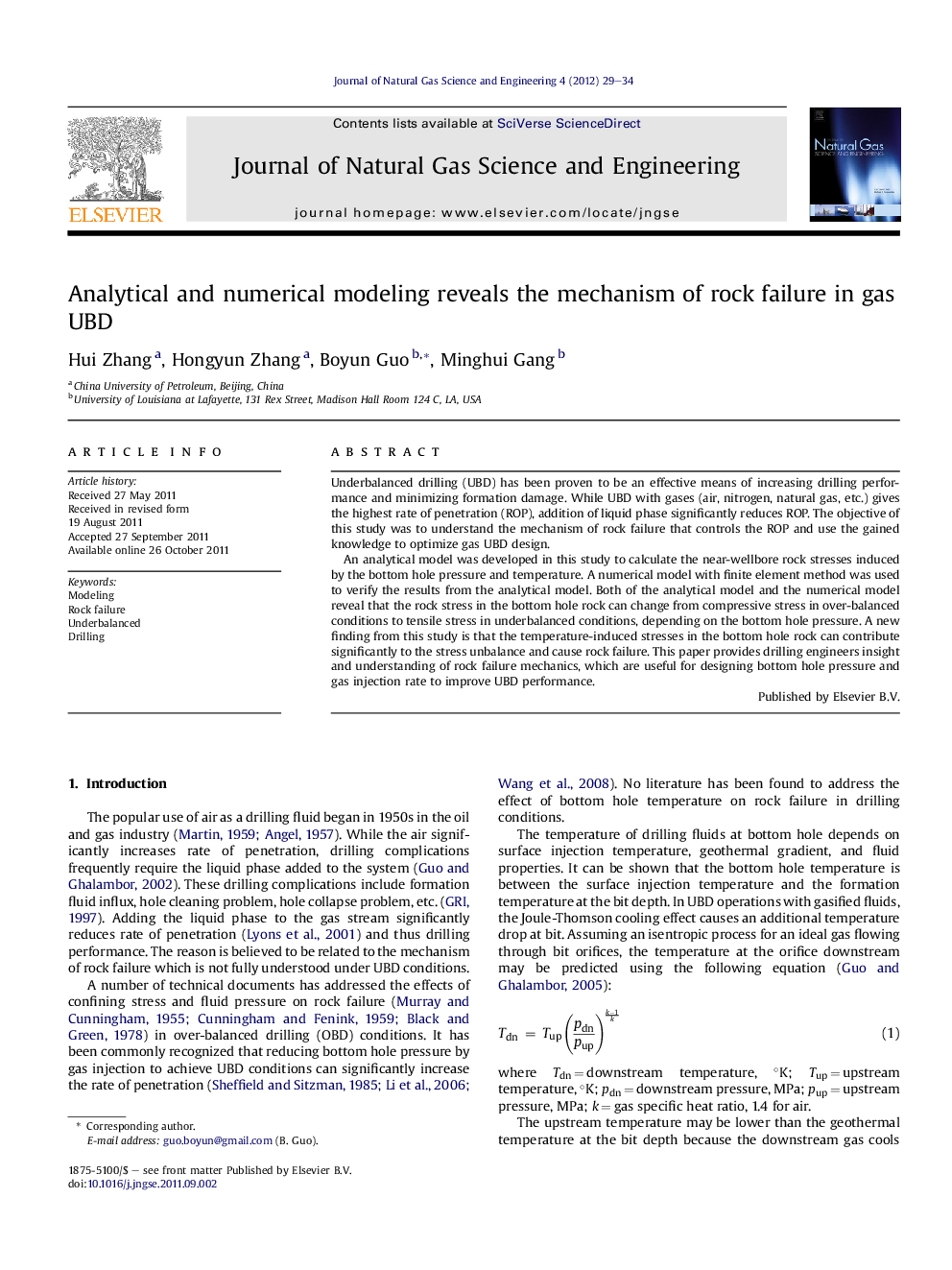| Article ID | Journal | Published Year | Pages | File Type |
|---|---|---|---|---|
| 1758176 | Journal of Natural Gas Science and Engineering | 2012 | 6 Pages |
Underbalanced drilling (UBD) has been proven to be an effective means of increasing drilling performance and minimizing formation damage. While UBD with gases (air, nitrogen, natural gas, etc.) gives the highest rate of penetration (ROP), addition of liquid phase significantly reduces ROP. The objective of this study was to understand the mechanism of rock failure that controls the ROP and use the gained knowledge to optimize gas UBD design.An analytical model was developed in this study to calculate the near-wellbore rock stresses induced by the bottom hole pressure and temperature. A numerical model with finite element method was used to verify the results from the analytical model. Both of the analytical model and the numerical model reveal that the rock stress in the bottom hole rock can change from compressive stress in over-balanced conditions to tensile stress in underbalanced conditions, depending on the bottom hole pressure. A new finding from this study is that the temperature-induced stresses in the bottom hole rock can contribute significantly to the stress unbalance and cause rock failure. This paper provides drilling engineers insight and understanding of rock failure mechanics, which are useful for designing bottom hole pressure and gas injection rate to improve UBD performance.
► We theoretically investigate the rock failure in over-balanced and underbalanced drilling conditions. ► We found that rock stress changes from compressive in over-balanced condition to tensile in underbalanced condition. ► The failure zone is deeper in the underbalanced drilling condition than in the over-balanced drilling condition. ► The low temperature of fluid in underbalanced drilling contributes to the stress unbalance and rock failure in the similar way as the low-pressure in the borehole.
